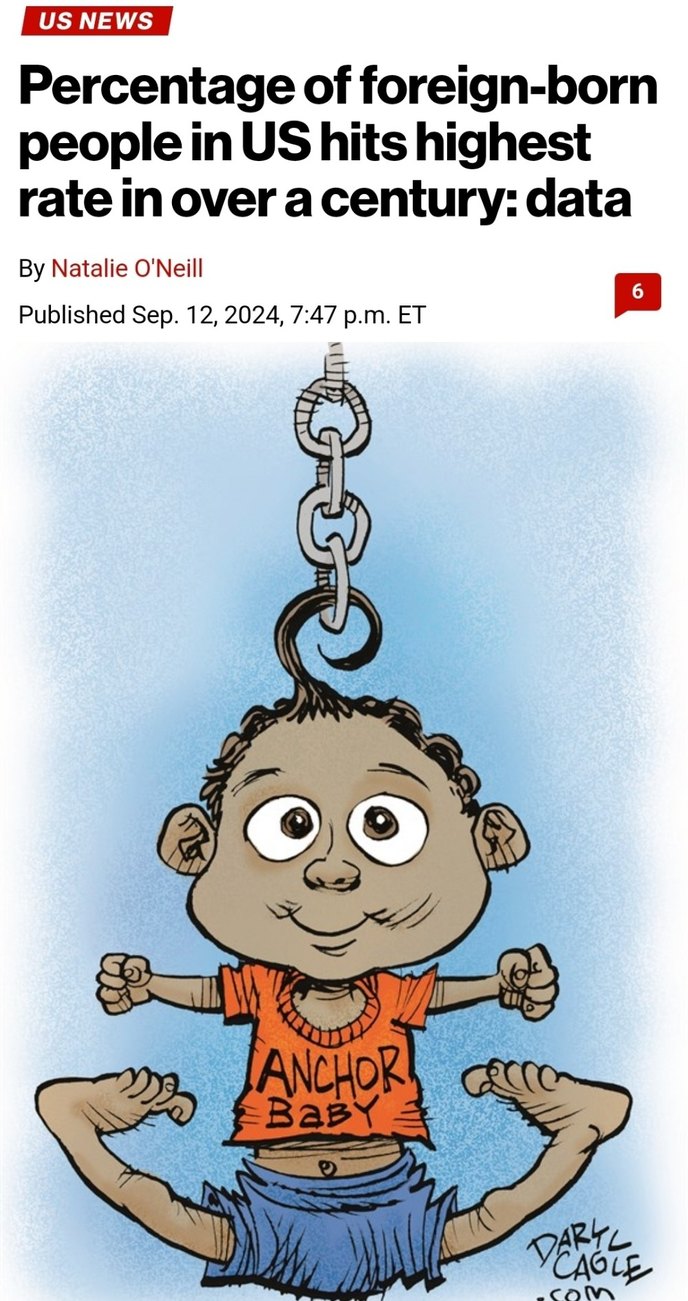
There exists a clear rationale to justify the abolishment of birthright citizenship. The argument is straightforward, and it rests on history and precedent.
The Citizenship Clause of the Fourteenth Amendment states: “All persons born or naturalized in the United States, and subject to the jurisdiction thereof, are citizens of the United States and of the State wherein they reside.”
The first problem I see here is redundancy. If “subject to the jurisdiction thereof” simply means, as common parlance accepts, that one is subject to the law because of physical presence in the territory, that clause is redundant—"born in the United States” covers that base. An interpretation of a legal text that creates a redundancy is disfavored ged, in my experience.
“Subject to the jurisdiction thereof” means owing sole allegiance to the United States.
This was confirmed by one of the primary drafters of the clause, Sen. Lyman Trumbull, who stated “subject to the jurisdiction” meant subject to “complete” jurisdiction—“[n]ot owing allegiance to anybody else.”
Orginally, the Supreme Court agreed. Although dicta (for lazy/stupid people, that means non-binding comments by judges in opinions that although not essential to a case, may be cited as persuasive authority or lead to new legal rules in future cases), both the majority and the dissent in the Slaughter-House cases ( 83 U.S. 36,) agreed that the 14th Amendment’s “subject to the jurisdiction” clause excluded the children of citizens and subjects of foreign states who just happened to be born in the United States.
SCOTUS confirmed this in Elk v. Wilkins when it denied birthright citizenship to an Indian (note for @Truck Fump / h1b: not a visa entrant) born on a reservation who claimed citizenship as an adult. The Court held that the claim of birthright required him not to be “subject in some respect or degree to the jurisdiction of the United States, but completely subject to their political jurisdiction, and owing them direct and immediate allegiance.”
In a reversal of stare decisis, the Supreme Court changed direction in United States v. Wong Kim Ark. In that case, a Chinese man (note for @Truck Fump / h1b: not a visa entrant) born to permanent residents (who were barred by federal statute from obtaining full citizenship) claimed birthright citizenship, and the Court held Wong Kim Ark qualified for the 14th Amendments' birthright citizenship.
IMO, the aura this decision placed around Wong Kim Ark is much broader than even its holding, which addressed the child of legal permanent residents.
Birthright citizenship should, at the least, be limited to children of parents here legally. The situation we have today is absurd and untenable.
Cut the anchor!
For the victims of suicidal empathy, I'll add this: deportation of infants may be necessary under the law. Tough titty. For that to be required, a baby who isn’t a citizen has parents who aren't either. They can depart or be deported together.
Think of it as a version of the KFC Family Bucket meme.








